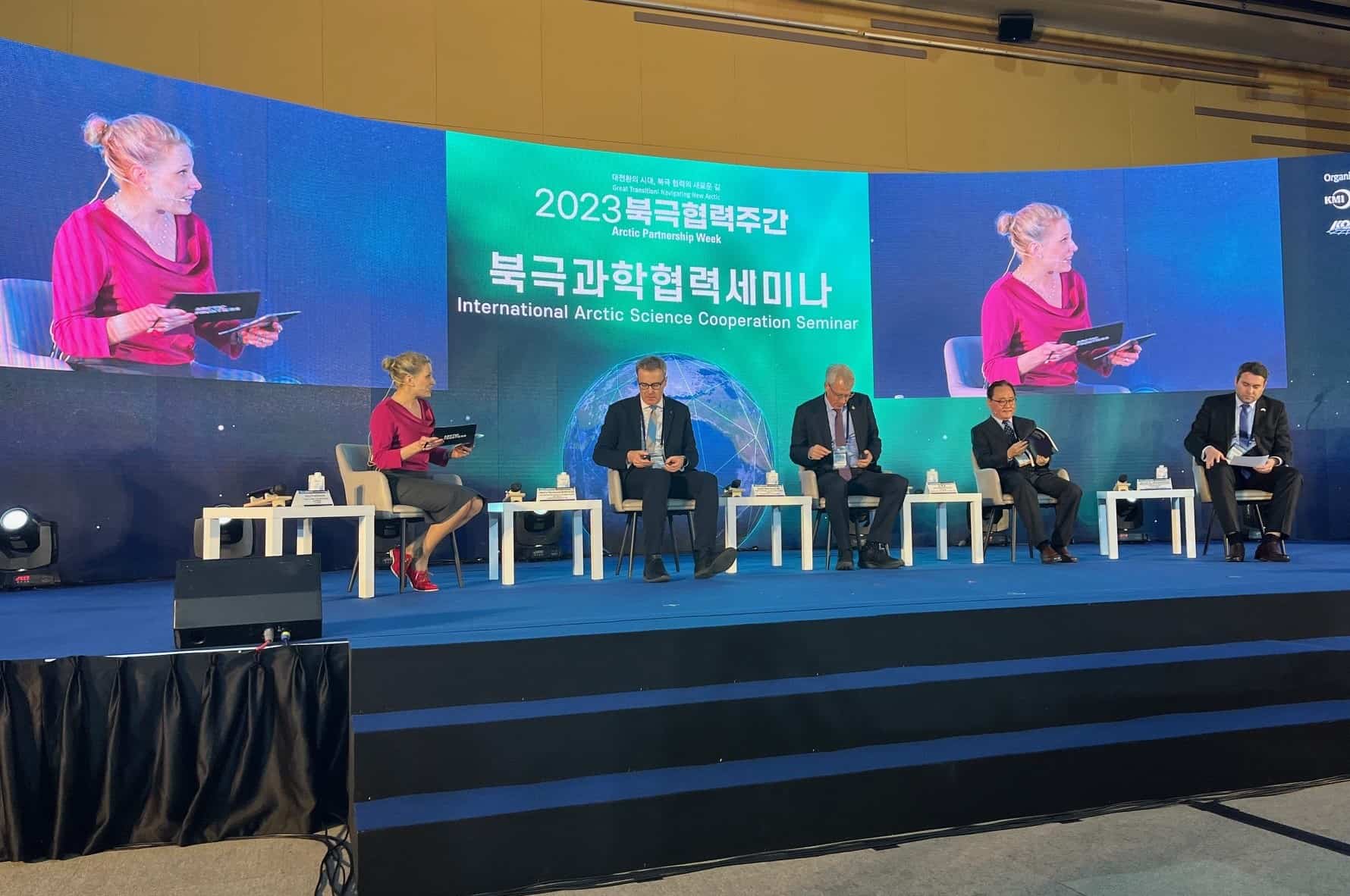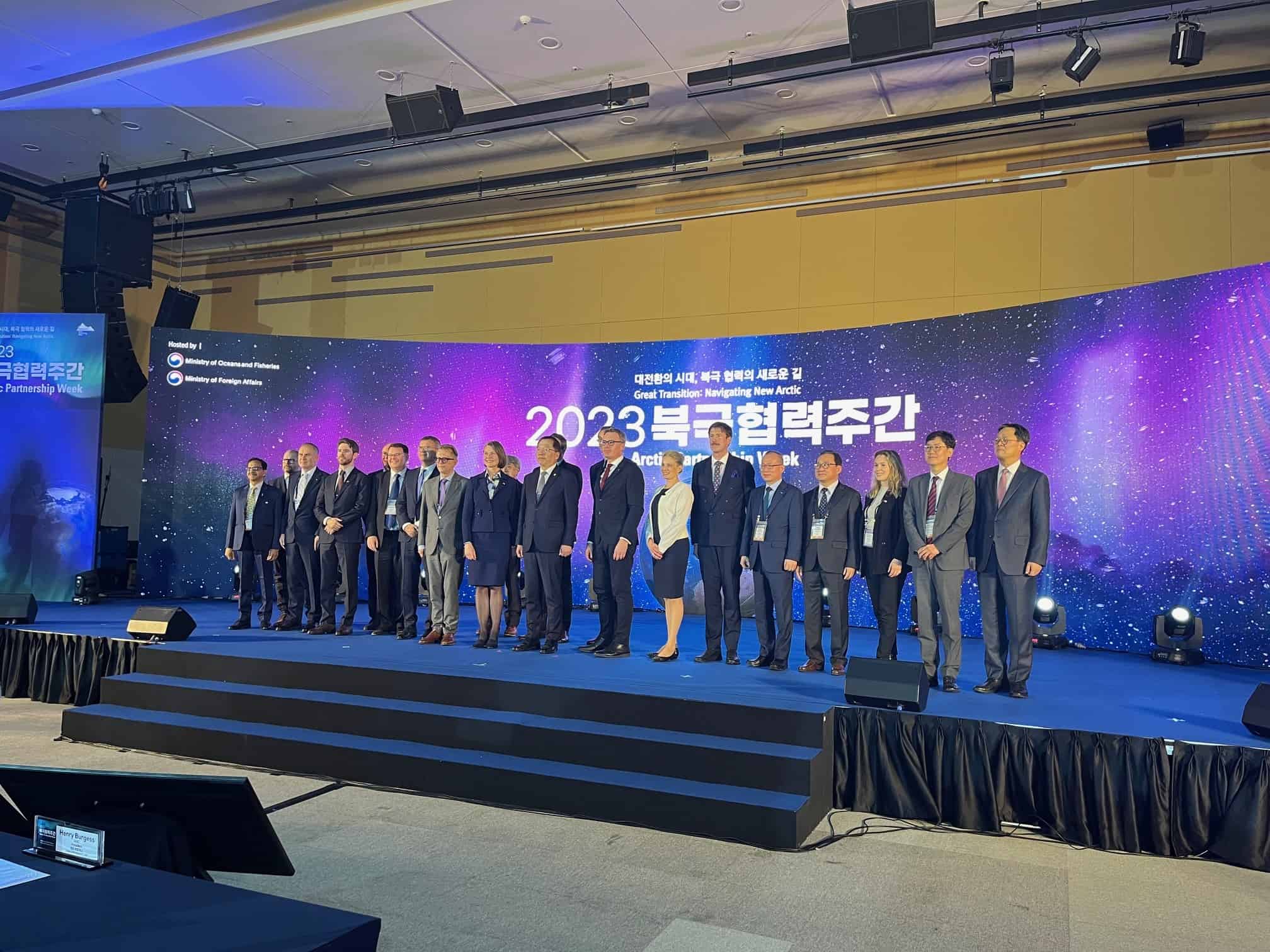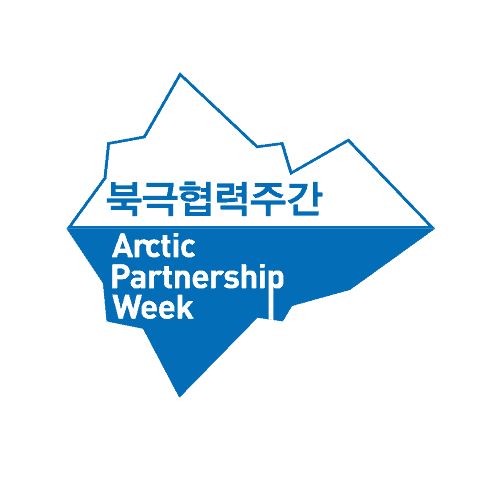During Arctic Partnership Week in Busan, South Korea, Arctic Frontiers and the Korean Maritime Institute hosted two sessions, Blue technology for ocean and ice observations and the International Arctic Science Cooperation Seminar 2023.
Blue technology for ocean and ice observations
Co-organized by: Arctic Frontiers and Korea Maritime Institute
Date/Time: Monday, December 11th, from 16:00-18:00 KST.
Long-term, regular observations of sea ice characteristics, along with monitoring of physical ocean conditions are crucial for safe shipping and blue economy (ocean-based economy) operations. This will become particularly important in the coming decades, as sea ice becomes less predictable due to climate change. Furthermore, expected traffic increases along new shipping routes and increased competition from the blue economy sector will further enhance the need for smart, innovative technological solutions for observations and monitoring.
In this academic session, invited speakers presented the latest technological developments and improvements for observing and monitoring the Arctic Ocean and sea ice and for sustainable Green shipping in the Arctic Ocean, including autonomous vessels, acoustic operations for fishing, AI and remote sensing for shipping and smart networks for scientific observations.
Program
Welcoming remarks
Ambassador Anne Kari Hansen Ovind, Royal Norwegian Embassy
Anu Fredrikson, Executive Director, Arctic Frontiers
MinSu Kim, Deputy President, Korean Maritime Institute
Presentations
- Arctic Passion Observations Project
Dr. Heikki Lihavainen, Svalbard Integrated Arctic Earth Observing System (SIOS), Arctic Passion Observations Project
- Eco-friendly container ship for Arctic
Senior Researcher Seong-Yeob Jeong (정성엽), Korea Research Institute of Ships and Ocean engineering
- AI for tracking illegal fishing
Mr. Martin Skedsmo, Kongsberg Satellite Services (KSAT)
- Eco-friendly icebreaking maritime autonomous surface ship
Prof. Se Won Kim (김세원), Se Jong University
- Using satellite images to ensure safe shipping in the Arctic
Prof. Malin Johansson, UiT The Arctic University of Norway
- Advancements in Technology for Reducing Carbon Footprint in Glacier and Sea Ice Observation
Principal Researcher Emilia Kyung Jin (진경), Korea Polar Research Institute of Marine Research
Moderated Panel Discussion
Panel moderated by Anu Fredrikson, Arctic Frontiers
Closing remarks



International Arctic Science Cooperation Seminar 2023
Date/Time: Monday, December 11, 2023; 14:00-16:00 KST
Venue: BPEX Convention Hall, Busan
Co-organized by: Korea Polar Research Institute (KOPRI), Royal Norwegian Embassy in Seoul, and
Embassy of Denmark/Innovation Centre Denmark Seoul and Arctic Frontiers
The world is currently confronting the undeniable effects of the climate crisis, particularly in the Arctic and Antarctic regions. Understanding the consequences of these transformations on global climate, biodiversity, and societies is more urgent than ever. However, the vast, remote, and dangerous nature of the polar regions makes it nearly impossible for a single program to fully grasp the rapid changes at play.
This challenge underscores the critical need for international, long-term research coordination, as highlighted by initiatives like the 4th International Conference on Arctic Research Planning (ICARP IV) and the 5th International Polar Year (IPY). Some of the key questions that would aid in understanding the process include: What are the benefit of coordination in international Arctic science, and their role in addressing the climate crisis? How can the process help to accelerate the involvement of multiple knowledge and stakeholders, including the Arctic Indigenous Peoples? How can the Korean program strategically engage with and contribute to these efforts?
Key experts from the International Arctic Science Committee (IASC) and the Scientific Committee on Antarctic Research (SCAR) provided us with valuable insights, enhancing our understand of the ICARP IV and IPY processes, their expected outcome, and offered guidance on the approach the Korean program should adopt to effectively navigate these crucial global endeavors.
Program
Opening Address
- Sung-Ho Kang, President, Korean Maritime Institute
- Anne Kari Hansen Ovind, Ambassador of Norway to South Korea
- Svend Olling, Ambassador of Denmark to South Korea
Oral Talks
- Henry Burgess, President, IASC
- David Hik, Chief Sceintist and Executive Director of Programs, Polar Knowledge Canada
- Yeadong Kim, President, SCAR
Discussion: Future opportunities, implications for Korea and beyond
Moderated by Anu Fredrikson, Executive Director, Arctic Frontiers
- Jacob Isbosethsen, Minister, Greenland Representation
- Henry Burgess, President, IASC
- Yeadong Kim, President, SCAR
- David Hik, Chief Sceintist and Executive Director of Programs, Polar Knowledge Canada